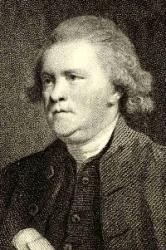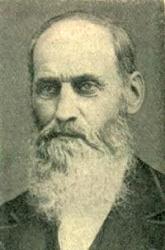Planning worship?
Check out our sister site, ZeteoSearch.org,
for 20+ additional resources related to your search.
- |
User Links
Person Results
Anonymous
Person Name: Unknown Composer of "FREEPORT" in The Church Hymnal In some hymnals, the editors noted that a hymn's author is unknown to them, and so this artificial "person" entry is used to reflect that fact. Obviously, the hymns attributed to "Author Unknown" "Unknown" or "Anonymous" could have been written by many people over a span of many centuries.
Anonymous
P. H. Brown

1783 - 1861 Author of "Hail, happy day! thou day of holy rest" in The Seventh-Day Adventist Hymn and Tune Book Brown, Phoebe, née Hinsdale. A member of the Congregational body, born at Canaan, Columbia County, New York, May 1, 1783, she was left an orphan when two years old. At nine she fell into the hands of a relative who kept a county gaol. These, says her son, "were years of intense and cruel suffering. The tale of her early life which she has left her children is a narrative of such deprivations, cruel treatment, and toil, as it breaks my heart to read." Escaping from this bondage at 18, she was sought by kind people, and sent for three months to a common school at Claverack, N.Y., where she learned to write, and made profession of faith in Christ. In 1805 she was married to Timothy H. Brown, a painter, and subsequently lived at East Windsor and Ellington, Connecticut, Monison, Mass., and at Marshall, Henry County, Illinois. She died at the last-named place, Oct 10, 1861. Most of her hymns were written at Monison, Mass. Through a life of poverty and trial she was "a most devoted mother, wife, and Christian." Her son, the Rev. S. R. Brown, D.D. became the first American Missionary to Japan, and two of her grandchildren are now in the same mission. In addition to her hymns, two or more volumes of prose by her have been published. Her Autobiography and Poems were being prepared for publication, when the editor died, and they are yet to appear. Despite all her disadvantages, Mrs. Brown's talents and work are superior to those of any other early female hymnist of America. It is hoped that her manuscript may some day be competently examined, and selected portions from them be published. Four of her hymns appeared in Nettleton's Village Hymns, 1824, with the signature "B."
1. As once the Saviour took His seat. Penitence.
2. Go, messenger of love, and bear. Missions.
3. I love to steal awhile away. Retirement.
4. Welcome, ye hopeful heirs of heaven. Young Converts.
Of these No. 2 is a Missionary hymn, written in 1817, but first published in the Village Hymns, 1824; No. 3 was written in 1818, and few hymns have a more pathetic history. It is this:—
Mrs. Brown was living at Ellington with "four little children, in a small unfinished house, a sick sister in the only finished room, and not a place above or below where I could retire for devotion." Not far off stood the finest house in the neighbourhood, with a large garden. To-wards this the poor woman used to bend her steps at dusk, loving, as she writes, “to smell the fragrance of fruits and flowers, though I could not see them," and commune with Nature and God. This she did, never dreaming that she was intruding, her habits watched, or her motives misconstrued, till one day the lady of the mansion turned rudely upon her with "Mrs. Brown, why do you come up at evening so near our house, and then go back without coming in? If you want anything, why don't you come in and ask for it?" Mrs. B. adds, "There was something in her manner more than her words, that grieved me. I went home, and that evening was left alone. After my children were all in bed, except my baby, I sat down in the kitchen with my child in my arms, when the grief of my heart burst forth in a flood of tears. I took pen and paper, and gave vent to my oppressed heart."
The Poem then written is headed "An Apology for my Twilight Rambles, addressed to a Lady, Aug. 1818.” The original has nine stanzas, the second beginning “I love to steal awhile away.” Years after, when Nettleton was seeking original matter for his Village Hymns (1824), this piece was abridged and altered into the present familiar form, either by Mrs. Brown herself, her pastor (Mr. Hyde), or Nettleton. Its popularity was great from the first. In 1853 it was included in the Leeds Hymn Book, and thus became known to English collections. It is found in Lyra Sacra Americana, p. 29.
In 1819 Mrs. Brown wrote two hymns which were strangely overlooked by Nettleton, and did not appear till 1831 in Hastings's Spiritual Songs. These are:—
5. How sweet the melting lay. Morning.
6. 0 Lord, Thy work revive. For a Revival. Both are found in Lyra Sacra Americana, pp. 28-30.
No. 6 was altered by the author for Nason's Congregational Hymn Book, 1857. This, according to Nason, is her authorized text. It is widely used in America, and is also found in a few English collections, including Reed's Hymn Book and the New Congregational Hymn Book, and sometimes is attributed in error to Hastings.
7. Great God, we would to Thee make known. This appeared in the Mother's Hymn Book, 1834.
8. We come, 0 Lord, before Thy throne. For Sailors.
9. Grant the abundance of the sea. For Sailors. Two hymns for sailors, which appeared in Linsley and Davis's Select Hymns, 1836.
10. Assembled at [round] Thine altar, Lord. Holy Communion. This also appeared in the Select Hymns, 1836, and was altered for Nason's Congregational Hymn Book, 1857. It is a good hymn, and deserves wider adoption.
11. Jesus, this mid-day hour. Noon. "Written by special request for the Fulton Street [Noon] Prayer Meeting," about 1857.
In addition to the foregoing there are four hymns by her in Parish Hymns (Phila.), 1843, to which they were contributed; and there may be many others in various collections which are uncredited. [Rev. F. M. Bird, M.A.]
-- John Julian, Dictionary of Hymnology (1907)
P. H. Brown
William Mason

1725 - 1797 Author of "Again the day returns of holy rest" in The Seventh-Day Adventist Hymn and Tune Book Mason, William, M.A., was born at Kingston-upon-Hull, 1725, and educated at St. John's College, Cambridge. He was some time a Fellow of Pembroke Hall. On taking Holy Orders he became Rector of Aston, and Precentor of York Minster. He died April 5, 1797. His poetical writings, including Poems, Tragedies, Odes, and Hymns, published at intervals, were collected and issued in 4 vols. in 1811 as The Works of William Mason, M.A., Precentor of York, and Rector of Aston. His hymns, few in number, include, "Again the day returns of holy rest”; "Soon shall the evening star with silver [silent] ray", &c. These are in vol. i. of his Works.
-- John Julian, Dictionary of Hymnology (1907)
=======================
Born: February 12, 1725, Kingston-upon-Hull, England.
Died: April 7, 1797, Aston, England. There is a plaque to his memory in Poet’s Corner, Westminster Abbey (next to Milton), with a bas relief image of him.
Pseudonym: Malcolm MacGregor.
Mason was educated at St. John’s College, Cambridge, and became fellow of Pembroke College in 1749. After taking Holy Orders, he became Rector of Aston (near Rotherham), Yorkshire, in 1754. He was appointed Prebend of Holme in York Minster in 1756, Canon Residentiary in 1762, became Precentor and Prebendary of Driffield in 1763. He also served as literary executor for poet Thomas Gray. His works include:
Musaeus, 1744 (a lament for Alexander Pope, in the style of Lycidas)
Isis, 1748
Elfrida, 1752
Odes, 1756
Caractacus, 1759
The English Garden, 1772, 1777, 1779 and 1782
An Heroic Epistle to Sir William Chambers, 1774
Ode to Mr. Pinchbeck, 1776
Epistle to Dr. Shebbeare, 1777
Essay, Historical and Critical, of Church Music, 1795
Sappho, 1797
Sources:
Julian, p. 717
Robinson, p. 35
http://www.hymntime.com/tch/bio/m/a/s/mason_w2.htm
========================
http://en.wikipedia.org/wiki/William_Mason_%28poet%29
William Mason
Roswell F. Cottrell

1814 - 1892 Person Name: R. F. Cottrell Author of "As time rolls on amid earth's gloom profound" in The Seventh-Day Adventist Hymn and Tune Book Born: January 17, 1814, Brookfield, New York.
Died: March 22, 1892, Mill Grove, New York.
Buried: West Ridgeway Cemetery, Medina, New York.
Cottrell was known as a writer, poet and minister. A member of the Seventh-day Adventists, he served for a time on the editorial committee of The Review and Herald in Battle Creek, Michigan. As of 1857, he was living in Mill Grove, New York.
--www.hymntime.com/tch
Roswell F. Cottrell


 My Starred Hymns
My Starred Hymns


